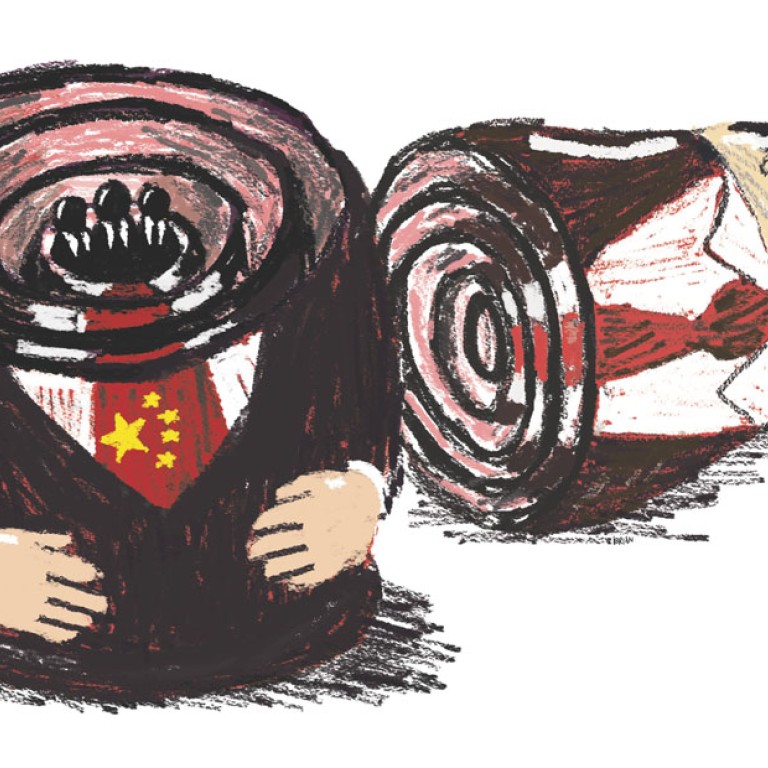
How leading small groups help Xi Jinping and other party leaders exert power
National leaders including Mao Zedong have used leading small groups to bypass opposition and assert control; Xi Jinping is just the latest
If you dissected the central government in Beijing, you would find something resembling a Russian nesting doll. Each layer removed would reveal another underneath with ever more powerful entities hidden further from view.

Further down would be the ruling Communist Party's 25-member Politburo, which weighs in on every major decision. Then comes the Politburo Standing Committee, the seven-member body led by party chief Xi Jinping that makes all the big calls.
In practice, however, the policies that affect the lives of 1.35 billion mainlanders and many others around the world are crafted by a more obscure class of entities - the so-called leading small groups.
These panels, which rarely announce their meetings or disclose their full membership, comprise the country's most powerful and influential leaders. Leading small groups cover everything from economics to propaganda to Hong Kong and Macau affairs. They thrash out policy details long before measures are presented to the party, let alone the public.
"In terms of input to the most important policy matters, they are much more important and powerful than the ministries," said Steve Tsang, director of the University of Nottingham's China Policy Institute.
"The more important a policy matter, the more likely that it will be made by the top leadership supported by a relevant leading small group of the Politburo," Tsang said.
That is why the creation of two new policy panels - both expected to be led by Xi, who is also president and commander-in-chief - was one of the most remarked developments of the party Central Committee's third plenum in November.
Analysts, such as University of Nevada political science professor Xiaoyu Pu, said the two panels would probably play a big role behind the scenes as Xi works to push his agenda past various entrenched interests.
"The two upcoming groups have important policy implications," Pu said. "First of all, Xi will probably consolidate power much faster through these two new groups."
The first, the Leading Small Group for the Comprehensive Deepening of Reform, will oversee big policy changes. The second, a national security committee, will bring together a patchwork of agencies and institutions responsible for protecting Chinese citizens at home and abroad.
While it is unclear whether the security panel will technically be a small group controlled by the party or a government body, it appears to serve the same purpose: bringing control over a broad policy area to a single conference table.
Leading small groups have long played a big role in the country's power structure. The first were established in 1958 to give the Politburo Standing Committee more control over policymaking while freeing up the party's Secretariat to focus more on day-to-day affairs.
The potential for abuse of the structure became clear in May 1966, when Mao Zedong installed five of his most radical supporters on a leading small group to oversee a mass youth uprising and root out his rivals.

But leading groups, which are established under the party's constitution rather than state law, have continued to proliferate. Since the 1990s, they have played an ever-larger role in policymaking. Some say they help cut through bureaucratic roadblocks and bypass entrenched interests. The Leading Small Group on Foreign Affairs, for instance, is seen as an effective tool for co-ordinating the actions of several agencies.
In theory, leading groups are supposed to issue guiding principles, rather than formulate concrete policies. In practice, however, their recommendations, particularly those of groups including one or more Standing Committee members, are often taken to represent a consensus.
In many cases, the party leadership will adopt a leading group's recommendation with little or no modifications. That can make the panels more powerful than ministries, which merely implement the policies they make.
"These central leading groups supersede all other government agencies in the power structure," said Zhiqun Zhu, Bucknell University's MacArthur chair in East Asian politics.
Some of the party's leading group's have broad portfolios, such as the Central Commission for Politics and Law. The panel oversees the police, prosecutors and courts, an arrangement that has been criticised as compromising judicial independence.
Until late 2012, the commission was led by then-Politburo Standing Committee member Zhou Yongkang , who is currently at the centre of a far- reaching corruption probe.
Alice Miller, a Chinese politics expert at Stanford University's Hoover Institution, has identified four types of leading group. There are panels run by the party, the State Council, and the People's Liberation Army, as well as a fourth type that cuts across those three areas.
Among the lesser known panels are the State Council Leading Group for Western China's Development, which was established under premier Zhu Rongji in 2000 and is now led by Premier Li Keqiang . The PLA set up a leading group on earthquake rescue and relief work after the Sichuan earthquake in 2008.
The establishment of a leading group can sometimes signal a major policy shift. The propaganda panel, for example, was set up to fight against "bourgeois liberalisation" after conservative party elders successfully secured the demotion of reformist party chief Hu Yaobang in 1987.
Analysts say the two bodies created by Xi will likely be among the most influential ones in the years ahead, given their broad portfolios and the expectation that Xi will personally lead them.
Some observers suggest that Xi may use the groups to circumvent political opponents in the Politburo, something that could result in factional battles within the ruling party.
Tsang said the bodies would, together, become Xi's key instruments for advancing his agenda. "Xi intends to use these two new bodies to enhance his capacity to lead," he said.

